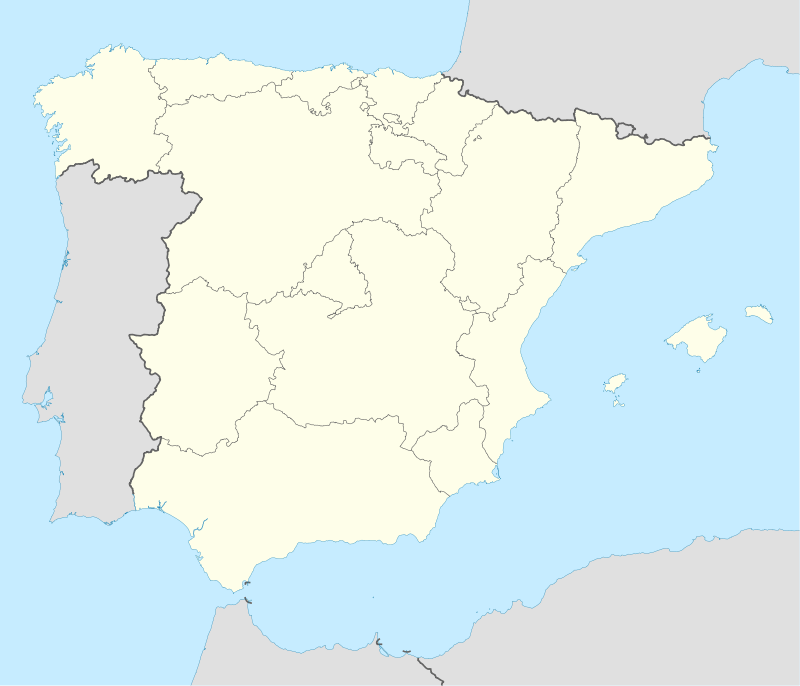Betanzos
| Betanzos | ||
|---|---|---|
| Municipality | ||
| ||
|
| ||
 Betanzos Location in Spain | ||
| Coordinates: 43°16′45″N 8°12′38″W / 43.27917°N 8.21056°WCoordinates: 43°16′45″N 8°12′38″W / 43.27917°N 8.21056°W | ||
| Country |
| |
| Autonomous community | Galicia | |
| Province | A Coruña | |
| Comarca | Betanzos | |
| Founded | 1219 | |
| Government | ||
| • Alcalde | Ramón García (PSOE) | |
| Area | ||
| • Total | 24.19 km2 (9.34 sq mi) | |
| Elevation | 36 m (118 ft) | |
| Population (2008) | ||
| • Total | 13,522 | |
| • Density | 560/km2 (1,400/sq mi) | |
| Demonym(s) |
Brigantino, na Betanceiro, ra; garelo/a | |
| Time zone | CET (UTC+1) | |
| • Summer (DST) | CEST (UTC+2) | |
| Postal code | 15300 | |
| Official language(s) |
Galician Spanish | |
| Website | Official website | |
Betanzos (Galician pronunciation: [beˈtanθos]) is a municipality in the autonomous community of Galicia in northwestern Spain in the province of A Coruña. It belongs to the comarca of Betanzos. In Roman times Betanzos were called Carunium or Brigantium. During the Medieval period the settlement was known as Carunio.

The town is located in a fertile valley close to the Atlantic Ocean, and it has one of the best preserved old quarters in Galicia. Noteworthy is the Igrexa de San Francisco (St Francis Church), erected in 1387 by order of count Fernán Pérez de Andrade, whose tomb, decorated with hunting scenes, can be seen inside of the church. The Igrexa de Santiago (St James Church), built in the 15th century by the guild of tailors, has a main portal decorated with a horseback statue of Saint James.
Other sights in the town are several town palaces, a 16th-century clock tower, and the town walls, which preserve three of their original four gates.
There are two celebrations in Betanzos in August each year. At the festival of San Roque, a very large paper balloon is launched. And later in August, decorated boats sail along the Mandeo river to the nearby Os Caneiros.
Demography

